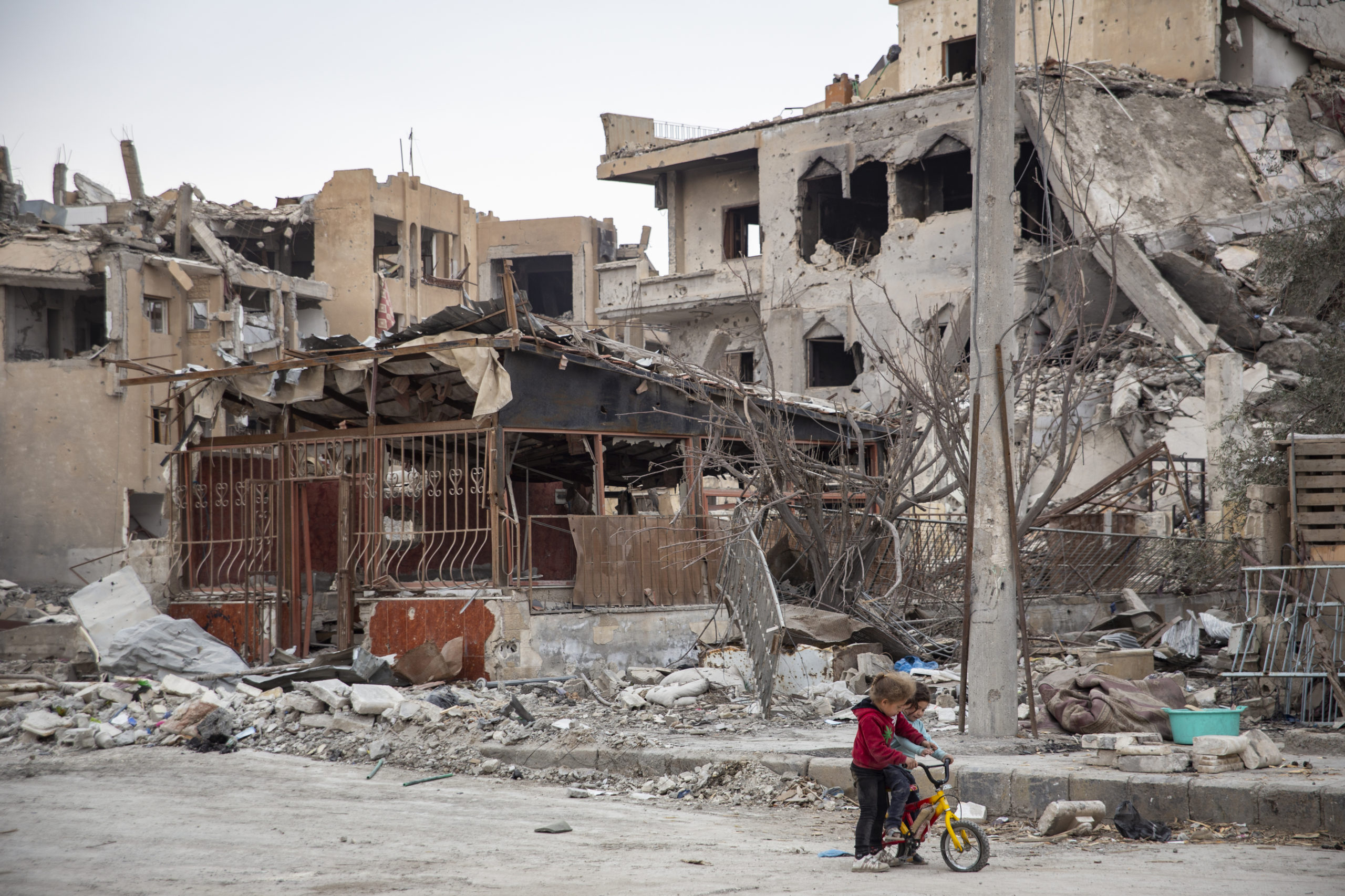DOWNLOAD PDF
THE ISSUE
Parties to the armed conflict in Syria committed war crimes and other grave violations of international humanitarian law and human rights abuses with impunity. Government and allied forces, including Russia, carried out indiscriminate attacks and direct attacks on civilians and civilian objects using aerial and artillery bombing, including with chemical and other internationally banned weapons, killing and injuring hundreds.
THE HUMAN COST
Ali Mahmoud Othman: From the outset of the Syrian uprising in mid-March 2011, the Syrian government has struggled to prevent news of its violent crackdown on the protests from reaching the outside world. In Homs in February 2012, Ali Mahmoud Othman was part of a network of activists who ran the makeshift Homs media center, a temporary house used as a base by citizen journalists and media activists who were posting footage and information online and broadcasting news reports.
Ali Mahmoud Othman was also well-known for helping foreign journalists enter Baba Amr, and for facilitating the movement of foreign journalists in and out of Homs—including journalist Paul Conroy and French reporter Edith Bouvier after they were injured in shelling.
After he disappeared in March 2012, released detainees claimed to have seen him at a Military Intelligence branch in Aleppo and later at the Palestine Branch detention center in Damascus, but his family was never told where he was being held or why until he appeared on Syria state TV in May 2012, where the presenter explained that Ali Mahmoud Othman had been arrested for being a media worker who co-operated with “external powers plotting against Syria.” No one has heard from Ali Mahmoud Othman since the televised interview, and his family remains without any information about his fate and whether he was charged with any offenses.
Government forces maintained lengthy sieges on densely populated areas, restricting access to humanitarian and medical aid to thousands of civilians. Government forces and foreign governments negotiated local agreements which led to the forced displacement of thousands of civilians following prolonged sieges and unlawful attacks.
Security forces arrested and continued to detain tens of thousands of people, including peaceful activists, humanitarian workers, lawyers, and journalists, subjecting many to enforced disappearances, torture, or other ill-treatment and causing deaths in detention.
Armed opposition groups indiscriminately shelled civilian areas and subjected predominantly civilian areas to prolonged sieges, restricting access to humanitarian and medical aid. The armed group calling itself Islamic State (IS) unlawfully killed and shelled civilians and used them as human shields. US-led coalition forces carried out attacks on IS in which civilians were killed and injured, at times violating international humanitarian law. By the end of the year, the conflict had caused the deaths of more than 400,000 people and displaced more than 11 million people within and outside Syria.
TALKING POINTS
- The failure to renew the mechanism established by UN Resolution 2165 in 2014, which had enabled UN humanitarian agencies to deliver aid across the Turkish border to areas of northern Syria controlled by armed opposition groups, will seriously exacerbate the already dire humanitarian situation, especially in Idlib and surrounding areas.
- Civilians paid a very high price for Raqqa’s devastating ‘liberation’ by U.S.-led forces. Amnesty International has detailed the emblematic stories of four civilian families who were brutally impacted by the relentless aerial bombardment. Between them, they lost 90 relatives and neighbors – 39 from a single family – almost all of them killed by Coalition air strikes. They are part of a wider pattern and provide a strong case that many Coalition attacks that killed and injured civilians and destroyed homes and infrastructure violated international humanitarian law.
- The scope of detention of political prisoners and prisoners of conscience by the Assad government remains unchallenged. These prisoners are stripped of political and legal rights and are subject to widespread torture and ill-treatment in detention. At Saydnaya Military Prison, the Syrian authorities organized the killing of thousands of people in their custody. Amnesty International’s research shows that the murder, torture, enforced disappearance, and extermination carried out at Saydnaya since 2011 has been perpetrated as part of an attack against the civilian population that has been widespread, as well as systematic, and carried out in furtherance of state policy.
RECOMMENDATIONS
The United States should:
- Work with the UN Security Council to alleviate humanitarian needs throughout Syria, currently most pressingly in the Idlib region.
- Remove policies hindering the resettlement of Syrian refugees. In line with UNHCR’s recommendations about resettlement of Syrian refugees to relieve pressure on the host countries, the United States should increase the number of Syrians accepted for resettlement.
- Publicly acknowledge the loss of civilian lives in the attacks on Raqqa made by the US-led coalition, and be transparent in providing information needed for investigations of the attacks. The government should commit to independent and impartial investigations of potential international law violations.
